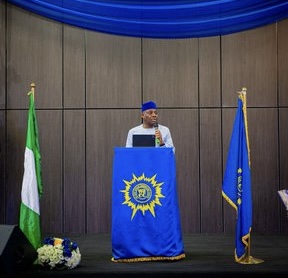
The Nigerian government on Tuesday announced that it has adopted the use of Computer-Based Tests (CBT) for the West African Senior School Certificate Examination (WASSCE).
Nigeria’s Minister of Education, Tunji Alausa in a statement said the board has transitioned into the use of CBT for the senior secondary certificate examination.
Describing the transition process as historic, Alausa said the move is aimed at strengthening the integrity of examinations, reducing malpractice, and aligning Nigeria’s assessment system with global standards.
He also said that the Nigerian government will be implementing broad reforms through the Renewed Hope Agenda including restructuring school curricula, modernising classrooms, and reforming technical, tertiary, and medical education.
“Today, I had the honour of announcing a historic milestone in our education sector — the official transition of the West African Senior School Certificate Examination (WASSCE) to Computer-Based Testing (CBT). This reform will strengthen the integrity of our examinations, drastically reduce malpractice, and ensure Nigeria’s assessment system meets global standards.
“For over 73 years, #waecnigeria has remained a dependable partner in advancing education across West Africa. With innovations such as the Digital Examiners’ Mark Sheet, WAEC Konnect, the e-Learning platform, and the Digital Certificate Platform, the Council has consistently shown its commitment to technological progress.
“Under the leadership of President Bola Ahmed Tinubu, GCFR, #officialABAT, our Renewed Hope Agenda is transforming education at every level. From restructuring the national basic education and senior secondary education curriculum and upgrading classrooms with modern tools, to reforming our federal technical colleges, tertiary and medical education, we are laying strong and sustainable foundations that will outlive us,” Alausa stated.
According to the minister, the CBT examination once fully implemented will serve as an avenue to safeguard the credibility of the certificates and empower the Nigerian child with the skills needed for a knowledge-driven economy.
He also noted that his office is committed to making sure that all Nigerian children have access to quality learning and the opportunity to fulfil their potential.
“To parents, teachers, and students: the Federal Ministry of Education will work closely with schools to ensure our learners are adequately prepared for this transition. Together, we will make this a smooth, successful, and transformative step forward.
“Education is the greatest legacy we can give our children — and together, we are securing its future,” Alausa noted.
